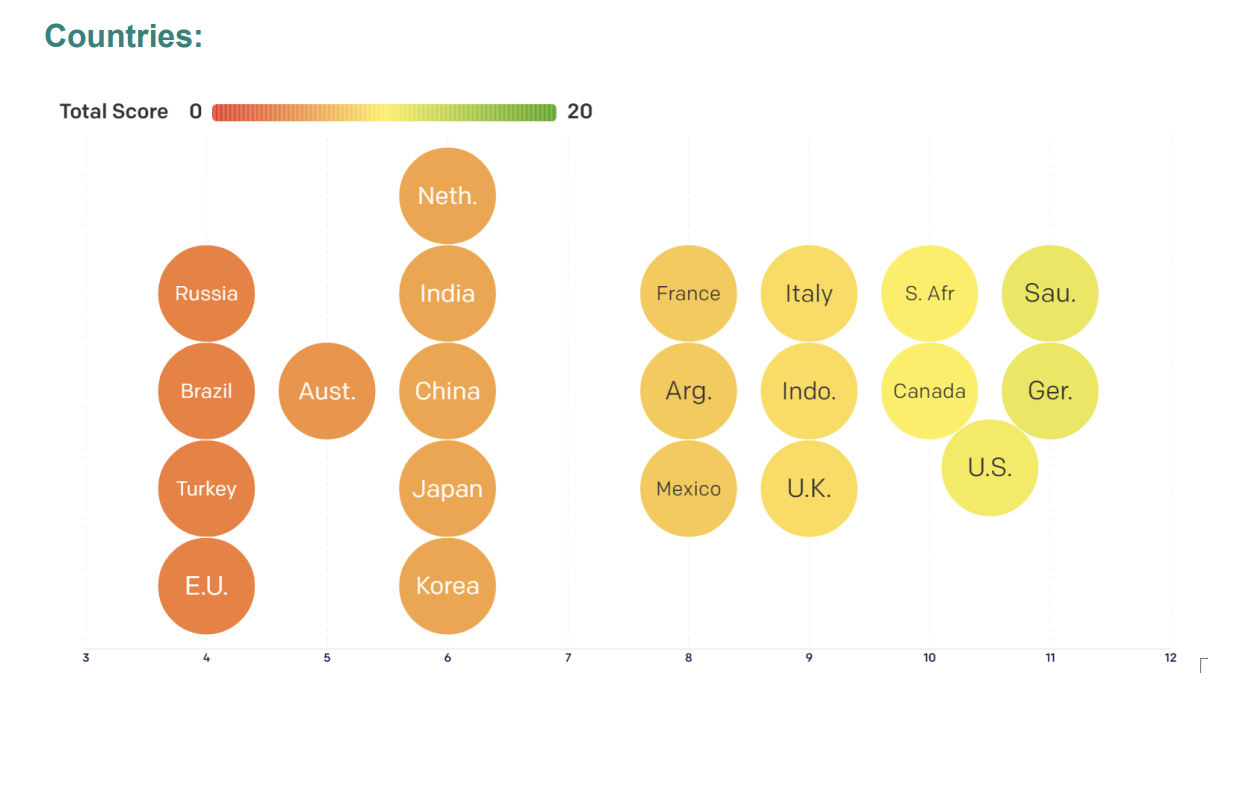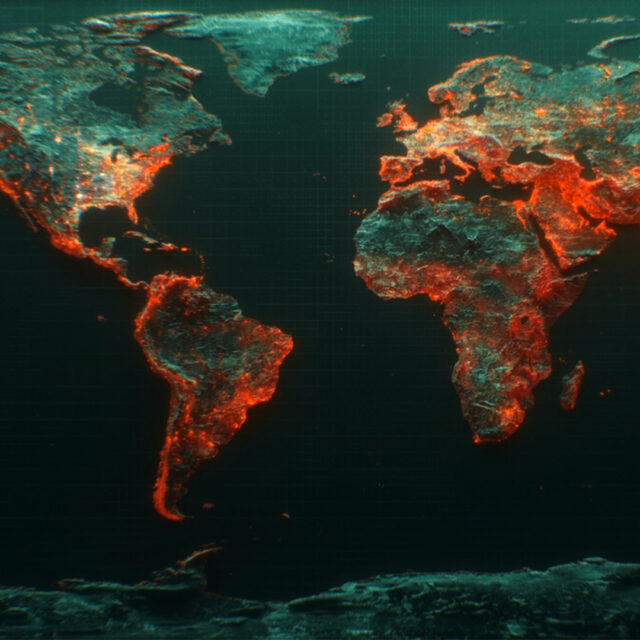The world is over a year into the COVID-19 pandemic, and we’ve seen some progress in global coordination to end it, including the Biden administration’s deal with Pfizer-BioNTech to purchase 500 million COVID-19 vaccine doses to share globally. But we need more global action to end the pandemic for everyone, everywhere.
The fastest way to do so and beat the virus is to ensure that everyone, regardless of where they live, has access to vaccines. Otherwise, the world is at risk of living in pandemic purgatory (our animated series “Pandemica” explores what this world would look like).
Until everyone has access to vaccines, the virus will continue to go unchecked, mutate, and wreak havoc around the world. So how well are companies and countries prioritizing global vaccine access?
Our Vaccine Access Test 2.0 assesses just that. The test looks at how well G20 countries and pharmaceutical companies are improving access to vaccines and captures the urgent actions needed now to do so.
As G7 countries gather to meet in Cornwall for the G7 Summit on 11-13 June, here are the latest findings and scores.
The latest updates
Since the last update, there has been incremental progress in the race to secure global vaccine access. Italy, the US, Japan, Australia, Germany, Spain, Sweden, and several other countries have all made commitments to share COVID-19 vaccine doses with middle- and low-income countries. But these commitments follow months of stagnation.
Additionally, Pfizer, Johnson & Johnson, and Moderna also announced that they will be providing over 2 billion vaccine doses to middle-income countries at low costs and to low-income countries at not-for-profit costs. The European Commission also increased financial commitment to ACT-A.
This progress is welcomed, but the world is still in a race to secure global vaccine access. One of the biggest initial challenges to scaling up vaccinations globally was supply, but new data shows that the supply of COVID-19 vaccines will soon exceed demand for them in every G7 country by the end of the summer — there will be a critical “tipping point” when the world’s richest countries begin to build up a surplus supply of vaccines while other countries continue to be left behind.
That’s why the decisions G7 leaders make in the near future will determine whether the pandemic ends this year or continues into 2022.
How scores have changed this month
Here’s a look at how scores have changed this month:
- The U.S. gained 2 points.
- Argentina lost 2 points.
- France gained 2 points.
- Brazil lost 3 points.
- Germany gained 1 point.
- Turkey lost 3 points.
- Canada gained 1 point.
- India lost 2 points.
- Australia gained 1 point.
- Sputnik V gained 6 points.
- Pfizer gained 6 points.
- Moderna gained 1 point.
Here’s a look at the current scores
What happens next
Over a year into the pandemic, there unfortunately still is not a collective plan to fight the virus. Ensuring global vaccine access is the fastest way to end the pandemic for everyone, everywhere because:
- If rich countries continue to monopolize the first 2 billion doses of vaccines, there could be twice as many deaths from COVID-19.
- As long as the virus continues to remain unchecked, it will continue to mutate and impact people globally. The only way to prevent new, possibly more dangerous, strains of the virus and dramatically slow transmission is through widespread vaccination.
- Vaccine hoarding by rich countries could ultimately cost the global economy up to $9.2 trillion, with rich countries bearing half of those costs.
The world cannot afford any more global inaction. Most G7 countries are scaling up vaccination programs and starting to reopen, which is why global leaders — starting with G7 leaders — must:
- Raise global ambition to achieve global herd immunity next year.
- Commit and plan to share vaccine doses to maximize global coverage.
- Commit to fully fund the ACT-A.
Learn more about the latest findings in the race for global vaccine access with our Vaccine Access Test 2.0, find out more about the need for global vaccine access in our new series Pandemica.





